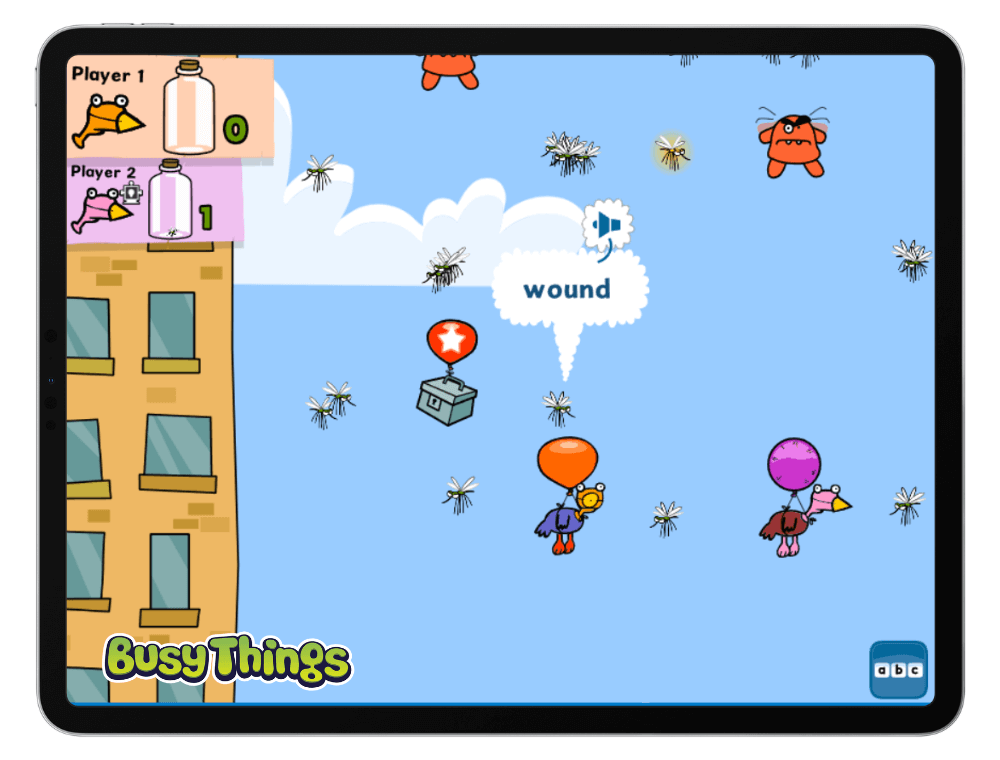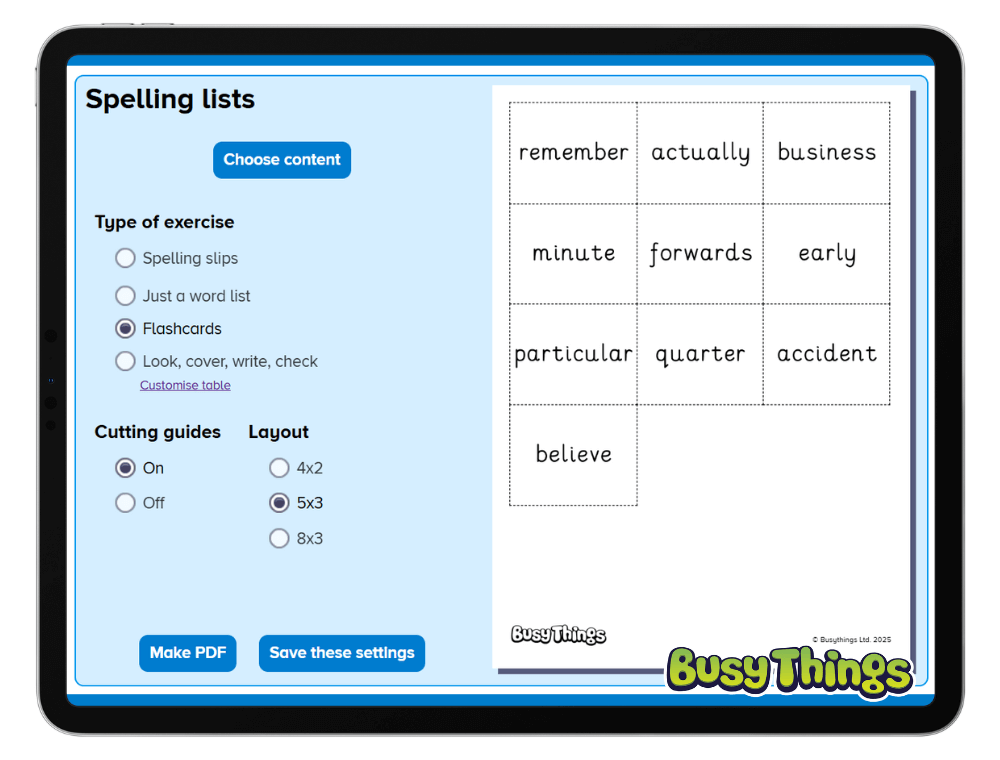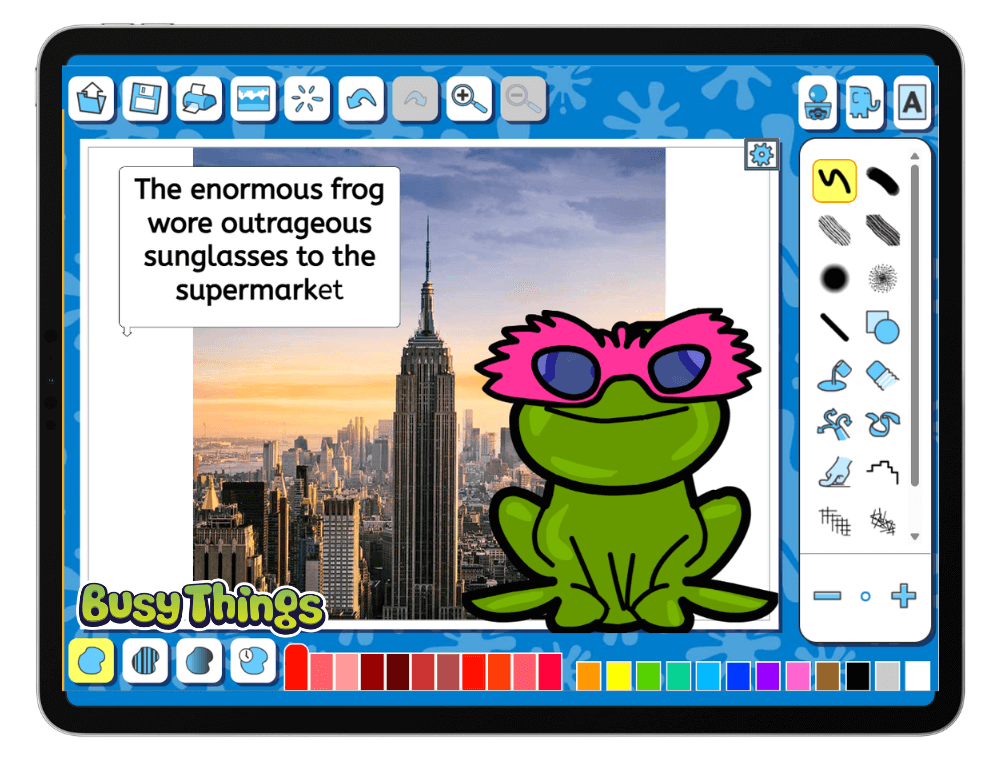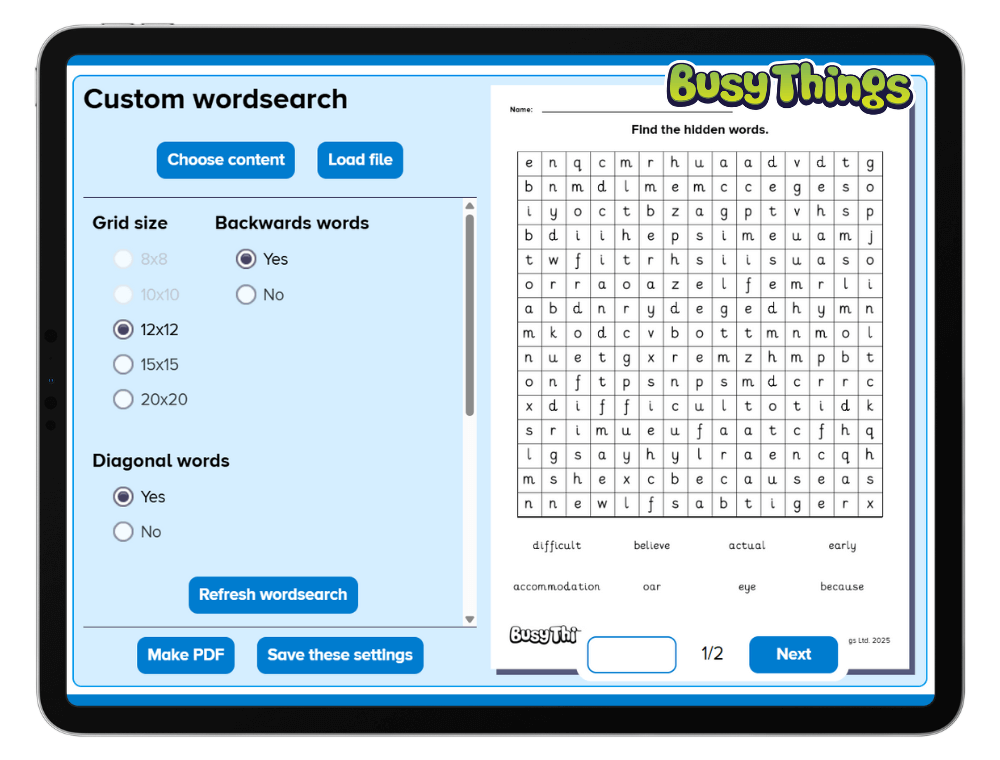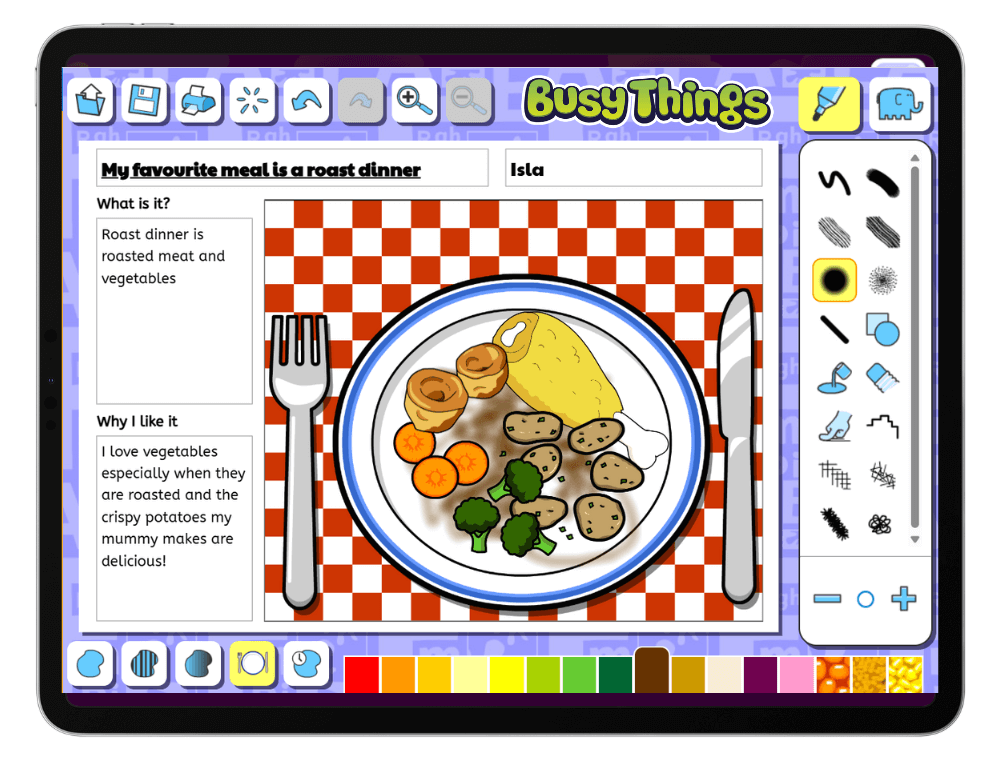7 ways to make spelling fun at home
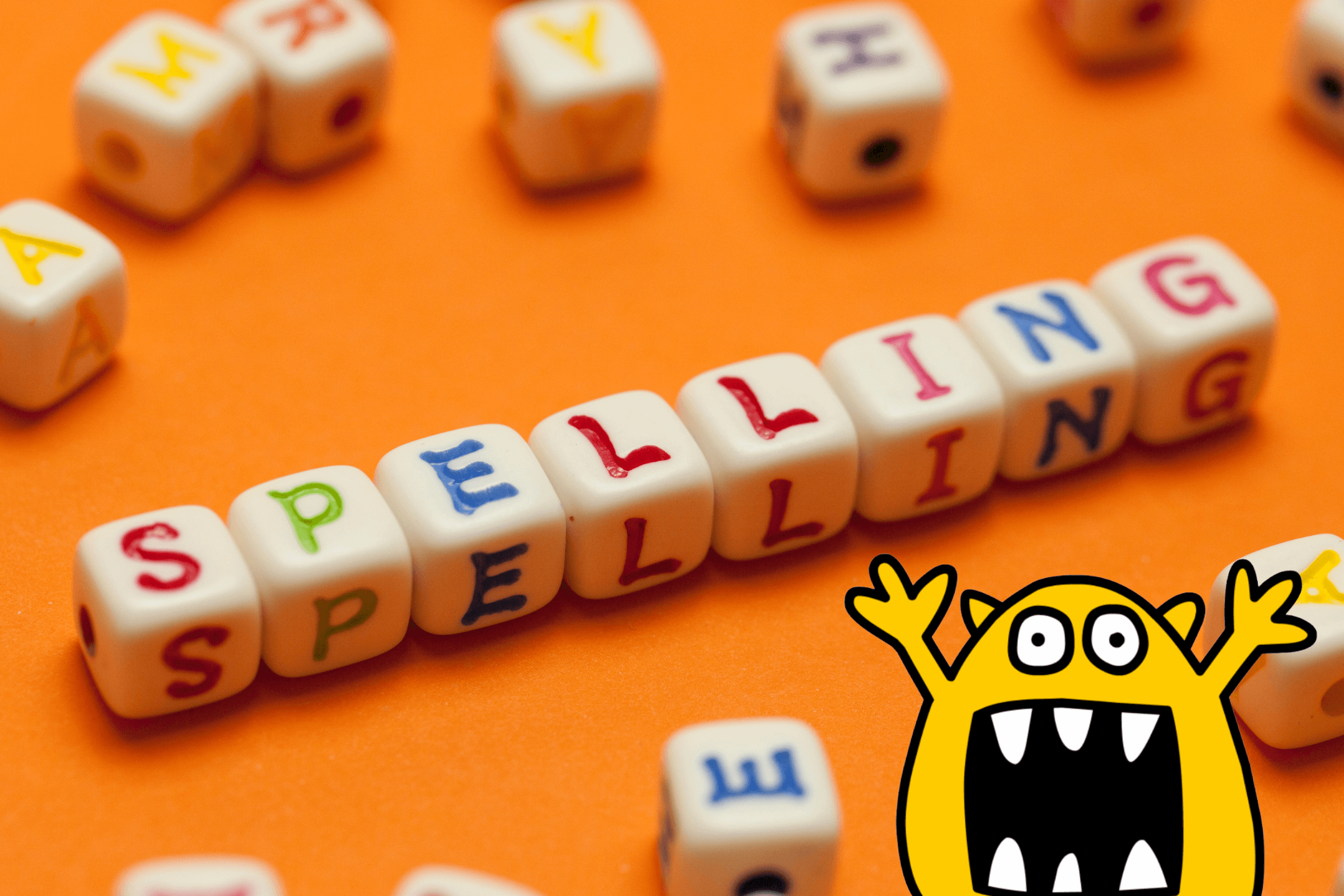
Hands up who loves a spelling test!… Anyone?
Spellings. Not exactly the homework highlight of the week… until now!
If you’re dealing with sighs, eye-rolls or dramatic flops onto the floor at the mere mention of spelling practice, you’re definitely not alone. Whether your child is just starting out with phonics or learning trickier vocabulary in Key Stage 2, spelling can feel like a chore… for them and you.
But the good news? It doesn’t have to.
Spelling is important — for reading, for communication, for lots of reasons that we’ll come to in a moment — but that doesn’t mean it’s easy to get children interested.
Don’t worry! We’re on a mission to make spelling time more fun, playful, creative and competitive… maybe even something your children look forward to!
So, why is spelling so important?
Even if it’s not set as homework every week, spelling is still worth practising at home. Here’s why:
- Reading fluency – Recognising spellings helps children read more smoothly and confidently.
- Vocabulary – Spelling practice introduces children to new words, helping them expand their vocabulary and understand how words are used.
- Clear communication – Accurate spelling helps children express themselves clearly in writing.
- Confidence – Making progress with spellings, even small steps, can feel like a real achievement and boost their motivation and resilience.
- Understanding spelling patterns – Spelling helps children spot common word structures and tricky rules, making it easier to read and write unfamiliar words.
- Identifying gaps – Spelling checks highlight which rules or patterns still need work.
However your child feels about spellings, there are ways to make practice time more enjoyable and more effective. Here are seven simple spelling practice ideas to try:
7 fun spelling activities to try at home
- Turn spelling into a game
- Use movement to boost spelling memory
- Create silly sentences with spellings
- Make spelling personal
- Feel spellings – build muscle memory
- Get sneaky with writing prompts
- Mix up spelling practice: screen time and hands-on fun
1. Turn spelling into a game
Pick a few words and set mini challenges that feel playful rather than like homework.
Why it works: The focus shifts away from “just writing the word” to playing, moving, and laughing. Children get more repetition in without it feeling forced.
For example:
- Echo spelling – You spell the word once, then your child has to “echo” it back in a funny voice (robot, opera singer, squeaky mouse). Swap roles so they get to “be the teacher.”
- Silly spelling moves – Choose an action (star jumps, balancing on one leg, marching like a soldier). Your child has to do it while spelling their word aloud.
- Spelling scavenger hunt – Turn your spelling list into a scavenger hunt. Write the words on small pieces of paper and hide them around the house. Each time your child finds one, they have to read it, spell it aloud, or use it in a sentence.
- Stair spelling – Each step up the stairs gets a letter. Call out the word as your child climbs, they give you one letter per step, then shout the whole word at the top. Perfect for bedtime!
- Funny face spelling – Every correct letter earns a doodle feature until the face looks ridiculous (giant nose, wobbly eyes, curly moustache).
- Freeze & Spell – Play music, then pause it at random. When it stops, shout a spelling word. Your child has to freeze like a statue and spell it before the music can start again.
Try Sky Larks: Full Flight on Busy Things. Players race to collect gnats by spelling words correctly, with the option to outsmart opponents using strategy and surprises along the way! Great for siblings or parents to join in, or play against the computer.
2. Use movement to boost spelling memory
Get them moving! Spelling doesn’t have to happen sitting still, physical activity helps reinforce learning by engaging different parts of the brain.
Why it works: Linking words with actions makes spelling more memorable and fun, especially for children who love being active. For example, you could ask children to try…
- Air writing – stretch your arm and write each letter in giant imaginary letters.
- Hop spelling – hop once for each letter sound
- Clap spelling – clap for each syllable in the word.
- Chalk jumps – write letters outside in chalk and get your child to jump between them in the right order.
Short of time? Busy Things’ Resource Maker lets you quickly create ready-made spelling activities! You can select a pre-set list of spellings or choose your own custom selection… perfect for spelling games, matching activities or flash card spelling practice.
3. Create silly sentences with spellings
Pick a few of your child’s spelling words and challenge each other to invent – and write down – the silliest sentence possible. The more ridiculous, the better: “The enormous frog wore outrageous sunglasses to the supermarket” will always beat “The frog sat on a log.”
Why it works: Linking spellings to humour and absurd imagery makes them far more memorable than just copying them out. It’s also a great way to stretch vocabulary and creativity.
For an added challenge, you could:
- Make it a competition – whose sentence gets the biggest laugh? Who can make the longest silly sentence?
- Add a drawing challenge – illustrate the sentence to reinforce the word visually.
- Build a whole silly story – string sentences together using different spelling words until you’ve got a short, funny tale.
Try using Busy Publisher to showcase your silly sentences! Children can use our bank of stickers and photographs or even upload their own to practise their creative and word processing skills, along with spelling!
4. Make spelling personal
Children are far more likely to stay engaged with spelling when the words actually mean something to them. Instead of sticking only to school lists, mix in spellings linked to their hobbies, favourite topics or family life. Suddenly, spelling practice feels less like homework and more like their world.
For example, you could:
- Create themed puzzles together — a magical wordsearch or a football word hunt will feel instantly more exciting than a random list of tricky words.
- Use family favourites or places they know — pets, family sports, things within favourite book or places in the town you live in.
Why it works: Personal connections help children care about the words and remember them more easily. They’ll be spelling because they want to, not just because they’ve been told to.
With Busy Things’ Wordsearch Generator, you can create puzzles using any theme your child loves — and even sneak in their weekly spelling words. Print them out, solve them together, or let your child design one for the family to crack.
5. Feel spellings – build muscle memory
Ever had to write down a word to check a spelling?
Spelling isn’t only about recognising letters and patterns, it’s also about building muscle memory. Sometimes the best way to lock in a tricky word is to feel it. Writing spellings out by hand helps embed the sequence of letters in a different part of the brain.
It might not sound thrilling to simply write the same word again and again, but with a few creative twists it can feel much more fun:
- Rainbow writing — write the same word in three different colours to make it stick.
- Big and small — write it once in tiny letters, then again in giant ones and all sizes in between.
- Crazy shapes — write the word in a zig-zag, spiral, or wavy line.
- Word art — turn the word into a doodle by decorating the letters with patterns, or shape the whole word into what it represents (e.g. write fish in the outline of a fish).
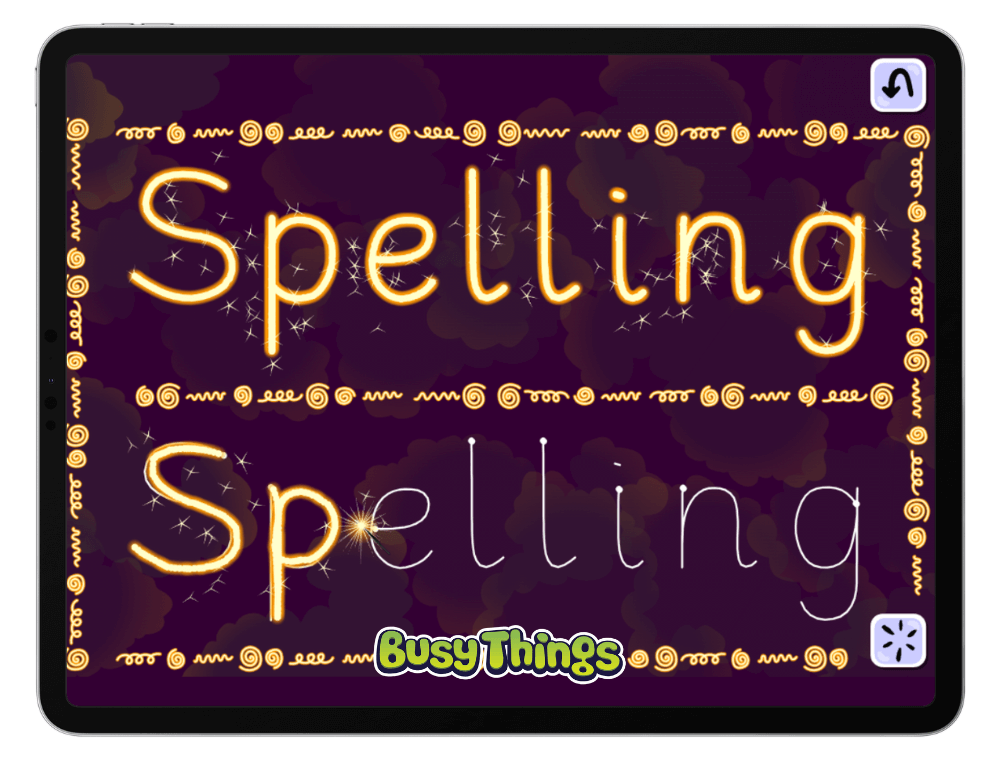
Busy Things’ Name Tracing Game lets children practise writing any word they like — from school spellings to football teams or favourite foods. Perfect for younger learners to build letter formation skills while reinforcing spellings.
6. Use writing prompts for better spelling
Instead of announcing “It’s spelling practice time!”, get sneaky! Hook your child in with a fun project, then help them slip their spelling words into the task as they go. They’ll barely notice they’re practising.
You could try:
- A football match report… could any of the week’s spellings to describe the action? Or players?
- A poster or fact file on a favourite topic… a favourite animal, hobby, or place, weaving in tricky words.
- A letter or postcard… to a grandparent, friend, campaign to your MP about a local issue or even Santa.
- A silly short story… see if you can inspire them to include a spelling word in each sentence.
Why it works: When children use words for a purpose, the spellings stick much more easily. It transforms lists of letters into something useful, creative and theirs.
Busy Things has loads of writing prompts where children can sneak spelling words into creative projects; from posters about climate change to fact files about animals or football players. Whether your child is interested in writing poems, stories or letters, writing prompts can make spelling practice feel like play!
7. Mix it up: screen time and hands-on fun
The best spelling practice blends the best of both worlds. A healthy mix of interactive tech and old-school pen-and-paper games keeps things fresh and stops practice feeling repetitive.
- On screen: Try Busy Things’ interactive spelling and phonics games like Sky Larks, Cats Spelling Splosh, or Caption Contraption. Children love the playful challenges, and you’ll love knowing they’re practising the exact spelling patterns they need.
- Off screen: Balance it with screen-free fun, like playing hangman, inventing silly sentence challenges, or printing a Busy Things wordsearch to crack together.
Why it works: Switching between screen time and hands-on activities keeps motivation high and gives children different ways to process and remember words.
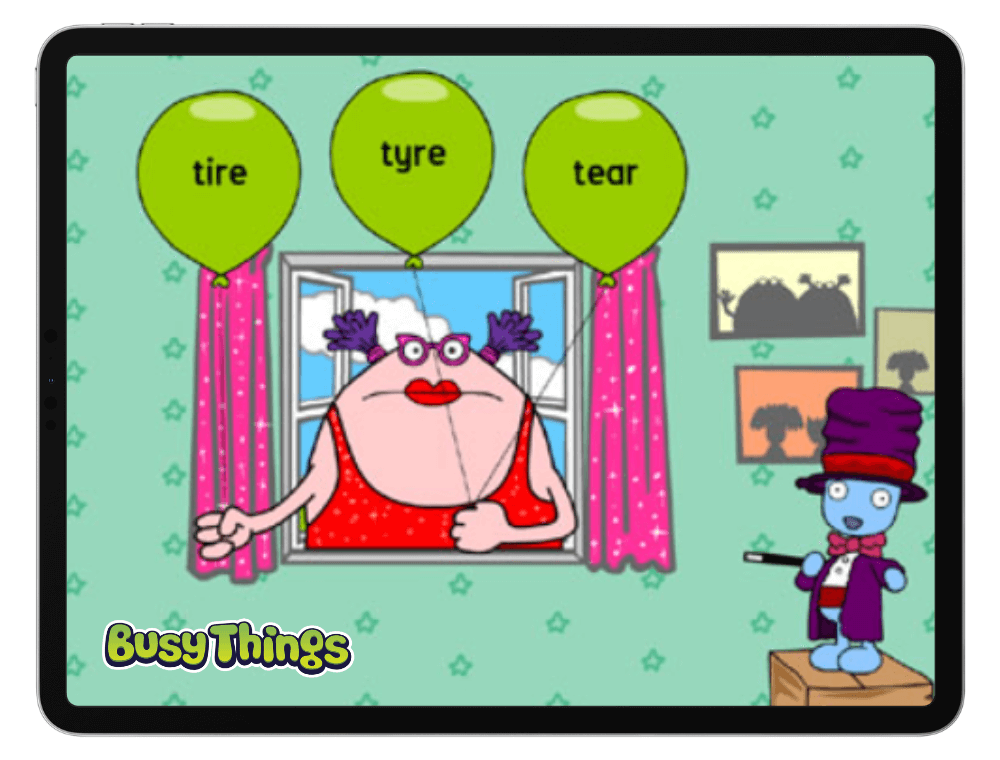
Explore Busy Things’ huge range of spelling activities — from interactive spelling games and phonics activities to printable puzzles. Perfect for mixing and matching screen and screen-free practice.
What’s the best way to help my child remember spellings?
The secret is simple: little and often. Short bursts of fun spelling activities, repeated regularly, make the biggest impact, without turning practice time into a battle.
Children learn in different ways, so mix up your approach. One day it might be silly sentences, the next a scavenger hunt or an online spelling game. Variety helps cement words in long-term memory.
And don’t forget the biggest spelling booster of all: reading! The more words children see in books, comics or even football magazines, the easier spelling becomes. If you’d like ideas on making reading fun, even for reluctant readers, take a look at our blogs on helping your child love reading and improving reading comprehension.
Ready to make spellings fun?
Spelling practice doesn’t have to be a battle! With Busy Things, you’ll find a whole library of interactive spelling games, creative writing prompts and printable resources designed to make learning tricky words fun!
Ready to take the stress out of spelling? Start your free Busy Things trial today!
